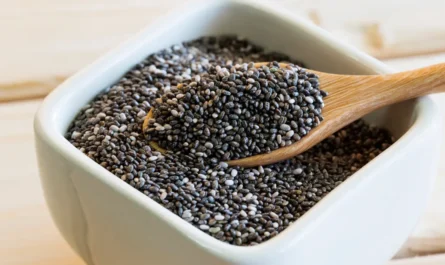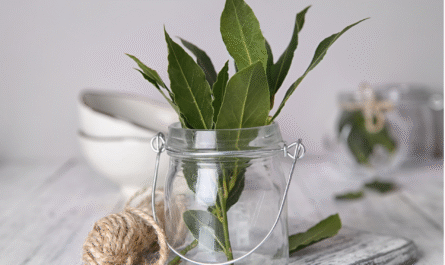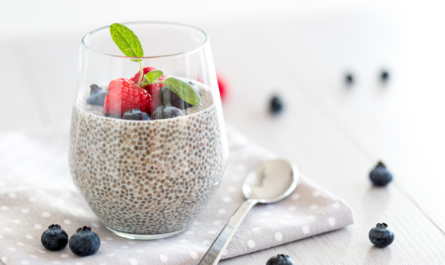Healthy habits for mental well-being and happiness aren’t luxuries; they’re necessities in today’s fast-paced, high-stress world. While society often emphasizes physical health, mental health deserves just as much, if not more, intentional care.
Mental wellness practices shape our ability to cope with challenges, build relationships, and maintain emotional balance. The good news? You don’t need radical life changes to improve mental health. Small, consistent actions can transform how you think, feel, and live.
This guide outlines 20 sustainable and realistic habits that anyone can build into their daily life. These habits aren’t quick fixes. They are proven, practical ways to build resilience, reduce anxiety, and find more joy in everyday life.
Whether you’re looking for mental health activities for adults, self-care routines for stress, or mindfulness exercises for beginners, these habits are designed to fit your real life.
What are Healthy Habits for Mental Well-being?
Healthy habits for mental well-being refer to daily or weekly practices that protect, strengthen, and stabilize your emotional and psychological state. These aren’t one-size-fits-all, but they all contribute to happiness and peace of mind.
They can include everything from consistent sleep routines and mindfulness activities to regular journaling, physical exercise, and even structured group therapy activities.
Importantly, mental well-being is not just the absence of illness. It’s about thriving, maintaining emotional stability, and having the tools to navigate life’s inevitable stressors. Just as brushing your teeth prevents cavities, mental wellness practices prevent emotional burnout. These habits form a toolkit of mental health improvement tips that promote self-awareness, confidence, and calm.
For adults, especially, incorporating mental health activities into everyday routines is key. This might look like turning off devices for a digital detox, starting your morning with positive affirmations, or participating in a weekly support group. There are countless mental health exercises you can try, the goal is to find what clicks and make it part of your regular routine.
Whether you’re looking for top ways to improve mental health at home or tools like a mental health worksheet to track your feelings, the principles remain the same: consistency, self-awareness, and action. Let’s explore 20 practical habits that can anchor your mental wellness.
20 Healthy Habits for Mental Well-being and Happiness
1. Start Your Day with Mindful Breathing
Mindfulness activities set the tone for your day. One of the simplest and most effective mental health exercises is mindful breathing. As you wake up, spend five minutes focusing on your breath. Inhale slowly, hold, and exhale fully. This kind of breathwork reduces cortisol levels and centers your nervous system.
Many beginners to mindfulness struggle with racing thoughts. That’s normal. The key is consistency. Making this a daily practice will gradually help your mind settle. It also fosters clarity, which helps you respond calmly instead of reacting impulsively.
Mindful breathing is an excellent entry point into mindfulness exercises for beginners. It’s low-effort, doesn’t require equipment, and can be done anywhere. Even during a lunch break or in traffic, this tool is at your disposal.
You can also combine breathing with mental health worksheets to track stress levels or emotional triggers over time. Use this as a diagnostic and maintenance tool. It’s a foundational self-care activity that everyone can benefit from.
2. Create a Consistent Sleep Schedule
Sleep is a core pillar of both physical and mental health. Irregular sleep patterns disrupt your body’s circadian rhythm, leading to irritability, anxiety, and impaired judgment. A consistent bedtime and wake-up time stabilize mood and improve energy levels.
Start by setting an alarm not just for waking up, but for going to bed. Use calming bedtime routines, no screens an hour before sleep, warm tea, or light reading. These self-care routines for stress signal to your brain that it’s time to wind down.
Over time, good sleep hygiene improves your ability to regulate emotions. It also boosts your cognitive function, memory, and patience. This simple habit is one of the top ways to improve mental health at home without expensive treatments or time-consuming therapies.
If sleep feels elusive, try using a mental health worksheet to monitor your sleep habits. Document when you go to bed, how long you sleep, and how rested you feel. Patterns will emerge that can guide changes.
3. Move Your Body Every Day
Physical activity isn’t just about fitness; it’s deeply tied to mental clarity and emotional stability. Exercise releases endorphins, natural chemicals that boost mood and reduce stress. It also regulates sleep and improves self-esteem.
You don’t need a gym membership. Walking, stretching, yoga, or home workouts count. The key is consistency. Aim for at least 30 minutes of movement per day. This counts as both a self-care activity and one of the most powerful mental health improvement tips.
Combine movement with mindfulness to amplify its effects. Try yoga or tai chi, both of which are mindfulness activities that strengthen the mind-body connection. These practices can be life-changing for those with anxiety or depression.
If you’re new to regular movement, start with basic mental health exercises like morning stretches or 10-minute walks. Track your progress with a journal or worksheet to stay motivated and notice patterns.
4. Practice Gratitude Journaling
Gratitude journaling is a simple but powerful way to shift focus from what’s lacking to what’s abundant. This habit helps you recognize daily positives, which rewires your brain over time to notice the good more often. It’s one of the most underrated mental health activities for adults.
Set aside five to ten minutes each day to write down three things you’re thankful for. These don’t have to be big wins. A good cup of coffee, a kind word from a friend, or finishing a task count. Consistent reflection through journaling reinforces optimism.
This habit is especially effective when paired with mindfulness exercises for beginners. Start each journaling session with a deep breath or short meditation. This grounds your thoughts and helps you tap into the present moment.
Use a mental health worksheet to track mood patterns before and after journaling. Over time, you’ll see how this simple act of gratitude transforms stress and improves your overall mental well-being and happiness.
5. Limit Screen Time
Digital overstimulation is a growing threat to mental wellness. Constant notifications, doomscrolling, and online comparison can elevate anxiety and drain mental energy. One of the most overlooked mental wellness practices is setting boundaries with screens.
Establish device-free zones in your home, especially in your bedroom and during meals. Use screen time trackers to monitor and reduce hours spent on non-essential digital activities. You might be surprised how much time can be reclaimed for more fulfilling self-care activities.
Digital detoxing opens up space for real-world wellbeing activities, reading, walking, and conversations. These activities are more nourishing than passive scrolling and help ground your nervous system.
If full detox feels overwhelming, start with short breaks. Use a mental health improvement tips checklist to plan intentional offline activities and reflect on the impact they have on your stress levels.
6. Connect with a Support Network
Human connection is one of the top ways to improve mental health at home or anywhere. Regular, meaningful interaction reduces feelings of isolation and provides emotional validation. Surrounding yourself with supportive people strengthens your resilience.
Whether through family, friends, online communities, or in-person group therapy activities, make it a priority to stay connected. Weekly check-ins or shared routines can provide a sense of structure and support.
Consider joining a support group or workshop focused on self-care routines for stress or anxiety. These environments offer shared experiences, reduce stigma, and encourage healing through conversation.
Building a support network also makes it easier to stick to other mental wellness practices. Accountability partners can encourage you to meditate, journal, or even attend therapy consistently.
7. Create a Morning Routine
Morning routines set the emotional tone for the rest of your day. A chaotic morning often leads to a chaotic mindset. On the other hand, a structured start cultivates control and clarity. This is why a consistent morning routine is one of the most effective mental health improvement tips.
Include grounding activities such as light stretching, hydration, a short walk, or positive affirmations. These self-care routines for stress help your brain wake up gently, reducing anxiety spikes.
Avoid checking your phone first thing. Instead, journal or practice mindfulness exercises for beginners. This builds mental discipline and reinforces internal peace before external noise sets in.
Customize your routine based on your needs. Whether it’s 10 minutes or 45, the consistency matters more than length. Use a mental health worksheet to design and track your ideal morning routine.
8. Learn to Say “No”
Setting boundaries is essential for mental well-being and happiness. Saying “yes” to everything drains energy and causes resentment. Learning to say “no” is one of the most empowering self-care activities you can adopt.
This habit protects your time and emotional bandwidth. It allows space for things that truly matter and reduces overwhelm. Start small by declining requests that conflict with your priorities.
Practice assertive communication. Be clear but kind. Saying, “I appreciate the offer, but I can’t commit right now,” is enough. You don’t owe long explanations for protecting your mental space.
This boundary-setting can be reinforced with group therapy activities or role-play scenarios. It builds confidence and helps you recognize your worth. When you respect your own limits, others are more likely to do the same.
9. Eat Nutrient-Dense Foods
Food affects mood. Nutrient-rich meals fuel your brain and stabilize emotions. Diets high in sugar, caffeine, and processed foods can increase anxiety and fatigue. One of the most practical mental wellness practices is improving your nutrition.
Incorporate more whole foods: leafy greens, berries, nuts, lean proteins, and omega-3 fats. These support brain function, reduce inflammation, and improve gut health, which is directly linked to mental health.
Meal prep can also become a mindful ritual. Cooking from scratch, selecting ingredients with intention, and eating slowly are powerful self-care activities. They turn a daily necessity into a healing experience.
Track how food affects your mood with a journal or mental health worksheet. Over time, you’ll see the connection between your diet and your mental energy. Prioritize foods that make you feel calm, alert, and nourished.
10. Set Boundaries and Learn to Say No
One of the most underrated mental wellness practices is learning to set healthy boundaries. Boundaries help you define what’s acceptable in your personal and professional relationships. Without them, it’s easy to become overwhelmed or manipulated, which can lead to stress, burnout, or resentment. Practicing assertiveness, clearly communicating your limits can significantly reduce anxiety and emotional fatigue.
This habit is particularly effective in reducing social overload. It allows you to prioritize your needs without guilt. Saying no doesn’t make you selfish; it makes you self-aware. It’s a form of self-respect that protects your mental clarity. By learning to decline invitations, requests, or tasks that don’t align with your goals or emotional capacity, you create space for more purposeful and fulfilling experiences.
Setting boundaries is especially helpful when managing work-life balance. Remote work and constant digital connectivity blur the lines between professional and personal time. Creating mental health routines that include “off” hours or digital detoxes can reinforce those boundaries and prevent emotional exhaustion.
Use tools like a mental health worksheet to define your current stress points and assess where boundaries are missing. Reflective journaling, therapy, or mindfulness exercises for beginners can help uncover where you’re overextending yourself. Over time, enforcing boundaries becomes a powerful defense mechanism against stress and a tool for long-term mental health improvement.
11. Practice Daily Affirmations and Gratitude
Affirmations and gratitude practices are simple yet powerful mental health exercises that boost emotional resilience. Starting the day with positive affirmations like “I am capable” or “I deserve peace” reprograms your mindset and builds confidence. Similarly, gratitude journaling shifts your focus from what’s lacking to what’s thriving, reducing negative thinking patterns.
Neuroscience supports the effectiveness of these habits. Practicing gratitude daily activates the brain’s reward system and promotes dopamine release, which helps counteract stress and anxiety. This can be particularly effective in managing symptoms of depression. Keeping a list of three things you’re grateful for each day takes only minutes, yet it can significantly improve overall mood.
Both practices are ideal for individuals seeking mental health activities for adults that are low-pressure but high-impact. They can be done during your morning coffee, while commuting, or before bed. The consistency is more important than complexity, build it into your routine as part of a broader self-care strategy.
To make this habit more engaging, use visual cues like sticky notes on your mirror or a gratitude jar. These mindfulness activities keep your mental focus on positivity and resilience. Over time, these rituals become grounding tools for daily life, reinforcing a more optimistic and emotionally healthy mindset.
12. Embrace Creative Outlets
Engaging in creativity, whether it’s painting, writing, music, or crafting, is one of the most enriching wellbeing activities for mental clarity. Creative expression offers a non-verbal outlet for stress, trauma, or anxiety. It allows you to process emotions constructively, making it a vital tool in your mental health improvement tips arsenal.
You don’t have to be an artist to benefit. The goal isn’t perfection, it’s expression. Art therapy, for instance, is widely used in group therapy activities because it opens pathways for healing without requiring deep verbal discussion. Whether you’re doodling, playing an instrument, or writing poetry, the creative process itself helps calm the nervous system.
Creative hobbies also provide structure and purpose, which are critical for mental well-being. They combat feelings of emptiness or boredom, especially in isolation. Picking up a creative hobby is one of the top ways to improve mental health at home because it’s accessible, inexpensive, and deeply fulfilling.
If you’re new to creativity, start small. Try adult coloring books, photography walks, or short journaling prompts. Integrate these into your self-care routines for stress to make them part of your lifestyle. The benefits compound over time, enhancing both mood and mental resilience.
13. Cultivate a Strong Social Circle
Social connection is a foundational pillar of emotional health. Humans are wired for community, and isolation can have serious mental consequences. Cultivating a trusted circle of friends, peers, or even support groups provides emotional reinforcement and a sense of belonging, both crucial for mental wellness practices.
Support doesn’t have to come from large groups. Even a few close connections can significantly buffer against depression, anxiety, and loneliness. Regular check-ins, shared meals, or video chats help you stay grounded. These interactions can serve as informal group therapy activities, where sharing and listening promote healing.
Stronger relationships also foster accountability in maintaining healthy habits for mental well-being and happiness. Whether it’s going for a walk together, checking in on sleep schedules, or sharing your struggles, social networks make self-care feel less isolating and more sustainable.
Don’t be afraid to seek new connections through community events, interest groups, or support forums. Even virtual spaces can offer meaningful interaction. And remember, social health is just as important as physical or emotional wellness, nurture it deliberately.
14. Prioritize Digital Detox
While technology connects us, it can also drain us. Excessive screen time, especially on social media, has been linked to increased stress, anxiety, and decreased focus. One of the best mental health improvement tips is scheduling regular digital detoxes to reset your mind and body.
Start by identifying your digital triggers: is it doomscrolling? Comparison fatigue? Information overload? Once you’re aware, set boundaries around device usage. Allocate tech-free zones (like your bedroom) or designate digital-free hours each day. This simple habit enhances mindfulness and reduces sensory overload.
During your detox, engage in analog alternatives, reading, walking, or engaging in other self-care activities like journaling or meditation. Replacing digital time with mental wellness practices strengthens your attention span and boosts real-world satisfaction.
Make digital detox a recurring part of your self-care routines for stress. Try “Screen-Free Sundays” or tech-free morning routines. You’ll likely notice better sleep, increased productivity, and a clearer mind within just a few weeks.
15. Practice Deep Breathing and Breathwork
Deep breathing is one of the simplest yet most powerful mindfulness exercises for beginners. It calms the nervous system, lowers cortisol levels, and helps regulate emotions in high-stress situations. Practicing breathwork for just a few minutes a day can dramatically affect your mental health.
Techniques like box breathing, 4-7-8 breathing, or diaphragmatic breathing are great starting points. You can use apps or guided videos to get into a rhythm. These exercises are often used in therapy and crisis intervention for good reason, they work fast.
Breathwork is also one of the top ways to improve mental health at home. You can do it in bed, at your desk, or while walking. It fits seamlessly into any schedule, making it a perfect addition to your mental health activities for adults.
Consistency is key. Pair it with other habits like meditation or journaling for a more holistic mental wellness practice. Within a few weeks, you’ll notice better emotional regulation, reduced anxiety, and improved focus.
16. Spend Time in Nature
Nature is healing. Studies show that spending time outdoors, especially in green spaces, can lower stress, boost mood, and enhance mental clarity. Nature walks, gardening, or simply sitting under a tree are excellent self-care activities that reconnect you to the present moment.
Nature also provides a rich environment for mindfulness activities. You can practice mindful walking, deep listening, or observational meditation by tuning into the sights and sounds around you. These experiences ground your nervous system and reduce mental clutter.
For those struggling with anxiety or depression, eco-therapy and forest bathing have emerged as therapeutic tools. These are especially helpful when incorporated into self-care routines for stress, giving your mind a break from digital noise and concrete environments.
You don’t need access to a forest, start with your backyard, a local park, or even a few houseplants. Building a habit of connecting with nature supports long-term emotional stability and enhances your mental health with little cost or effort.
17. Laugh More Often
Laughter truly is medicine. It lowers blood pressure, boosts immunity, and increases endorphin levels. Making laughter a daily habit, through comedy shows, funny videos, or social interaction, can dramatically shift your emotional state and contribute to healthy habits for mental well-being and happiness.
Laughter also acts as a natural stress reliever. It relaxes the whole body and eases muscle tension. Incorporating humor into your day is one of the easiest and most enjoyable mental health activities for adults.
Make a laughter list: favorite sitcoms, stand-up comedians, or lighthearted podcasts. Watch or listen to something funny during lunch breaks or before bed. It’s an effective way to decompress and reset your emotional energy.
Even in therapy, laughter can break tension and foster healing. Incorporate laughter into your group therapy activities or social time. It builds bonds and reminds you that joy is a powerful antidote to stress.
18. Track Your Mood
Keeping track of your emotions helps identify patterns and triggers. A mental health worksheet or mood tracking app can help you notice which habits improve or worsen your well-being. This self-awareness is crucial for personal growth and emotional resilience.
Mood tracking encourages reflection, which is a cornerstone of mental wellness practices. Over time, you may see correlations between certain activities, like poor sleep or skipped meals, and dips in your mood. These insights empower you to make better choices.
This habit is especially helpful when combined with professional support. Therapists often ask clients to track moods as part of treatment. It creates a record that makes therapy sessions more productive and focused.
Add this habit to your evening routine. Use a journal or digital tool to log your emotions, stress levels, and key activities for the day. It’s one of the most underrated mental health improvement tips, but its impact is long-term and profound.
19. Develop a Sleep Ritual
Sleep is non-negotiable for mental wellness. Poor sleep increases irritability, lowers cognitive function, and exacerbates symptoms of anxiety and depression. Creating a calming pre-sleep routine is one of the most important self-care routines for stress.
Your ritual might include dimming the lights, disconnecting from screens, taking a warm shower, or practicing a brief meditation. These cues signal to your brain that it’s time to wind down. Use this time to engage in mindfulness exercises for beginners, like deep breathing or progressive muscle relaxation.
Avoid caffeine, heavy meals, or intense discussions close to bedtime. Instead, focus on relaxing rituals that promote rest. Quality sleep enhances every other mental wellness practice, from emotional regulation to immune function.
Track your sleep patterns using a journal or app to find what works best. Over time, you’ll notice better energy, clearer thinking, and greater emotional stability, all keys to long-term mental health.
20. Seek Professional Help When Needed
No habit can replace the value of professional support. Therapists, counselors, and support groups provide structured tools and insights that are often beyond what we can do alone. Seeking help is a sign of strength, not weakness.
Whether you need short-term coaching or long-term therapy, don’t hesitate to reach out. Professionals can guide you through tailored mental health improvement tips, help identify root causes of distress, and introduce proven therapeutic methods.
Consider joining group therapy activities if you feel isolated. Sharing in a safe space can be incredibly validating and transformative. You can also use worksheets, CBT journals, or guided therapy sessions as part of your growth process.
Professional help complements everything else on this list. Therapy can amplify the effects of your healthy habits for mental well-being and happiness by providing structure, accountability, and deeper healing.
Final Thoughts on Healthy Habits for Mental Well-being and Happiness
Creating and sticking to healthy habits for mental well-being and happiness is a lifelong journey, not a one-time fix. Each habit on this list offers a practical, research-backed strategy to support your mental health, emotional balance, and sense of purpose.
Whether you’re just getting started or fine-tuning your current routines, the key is consistency. Start small, stay intentional, and build a toolbox of strategies that work for you. Your mind deserves just as much care and attention as your body, and it starts with habits that honor both.
FAQs on Healthy Habits for Mental Well-being and Happiness
Combine consistent self-care activities like journaling, mindfulness, digital detoxes, and movement. Building self-care routines for stress helps regulate emotions and create a calm, balanced state of mind. Try mood tracking, therapy sessions, gratitude journaling, and creative hobbies. These mental health activities for adults are practical and effective for managing everyday stress and emotional ups and downs. Start with breathwork, guided meditations, body scans, or mindful walking. These mindfulness exercises for beginners are accessible and easy to include in your daily routine. A mental health worksheet can help you track emotions, triggers, and thought patterns. It's a great tool to pair with therapy or self-reflection to support mental wellness practices and long-term growth. How can I create a self-care routine for stress relief?
What are some effective mental health activities for adults?
Which mindfulness exercises are ideal for beginners?
How do mental health worksheets help improve well-being?

























